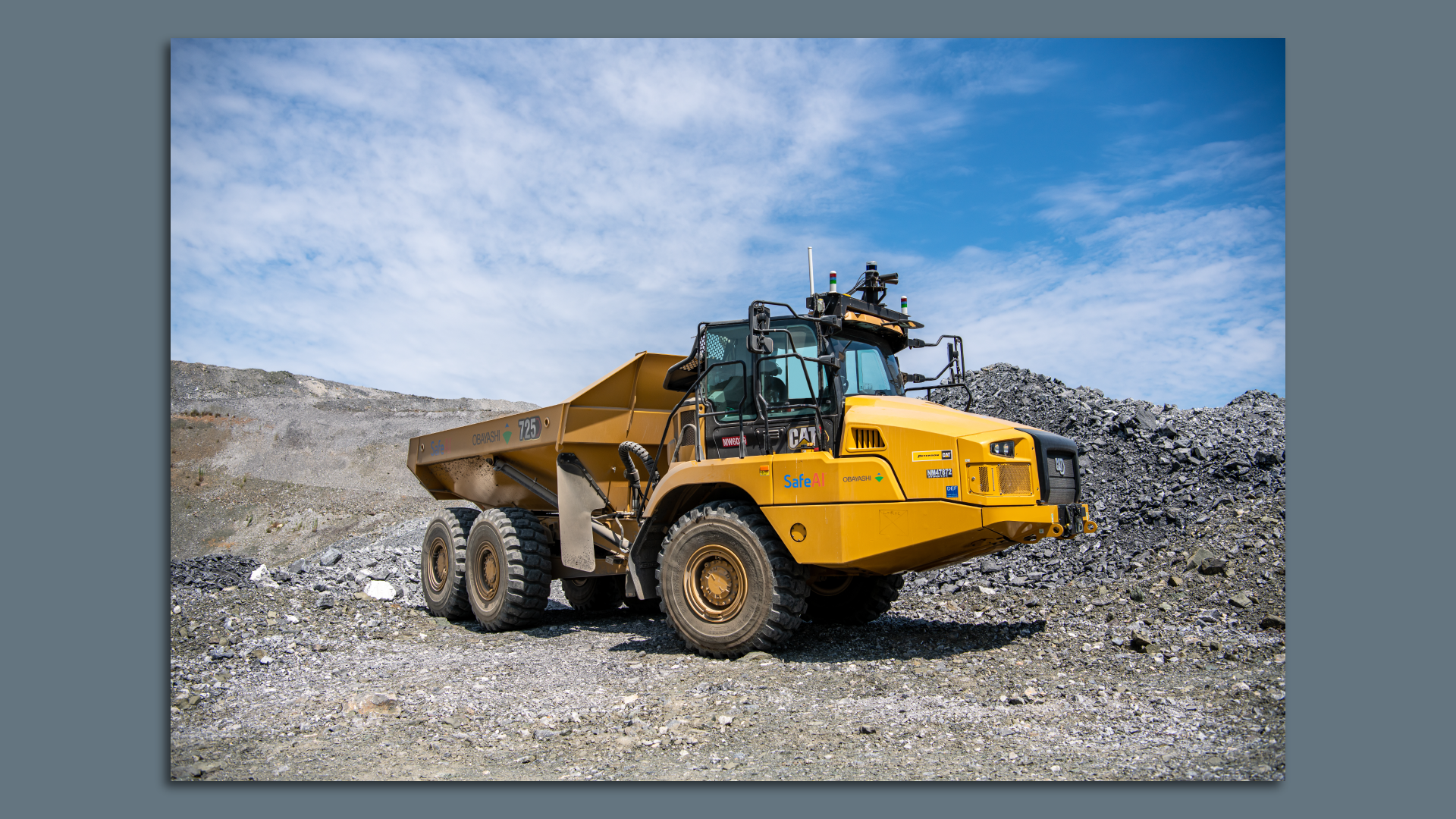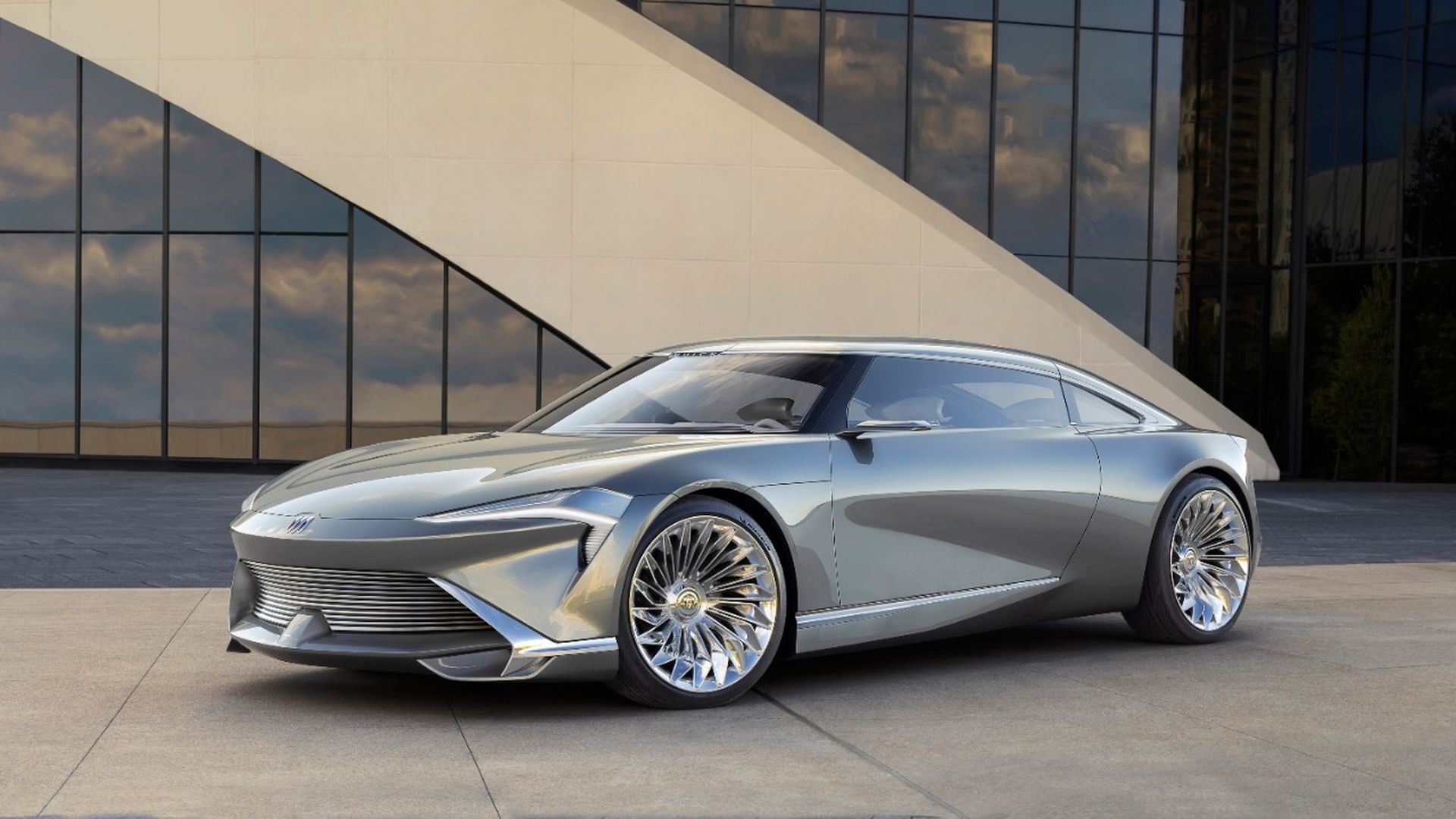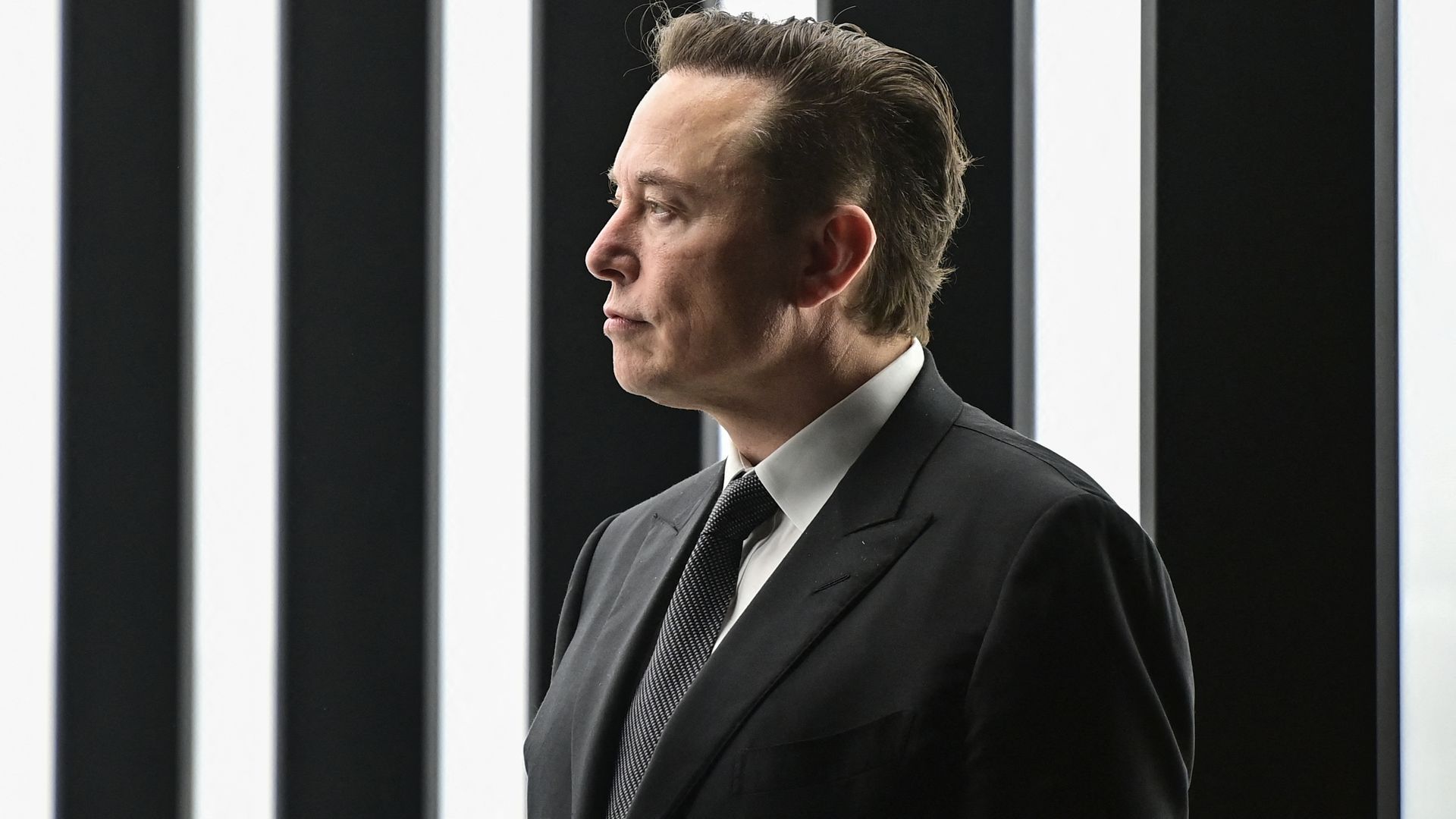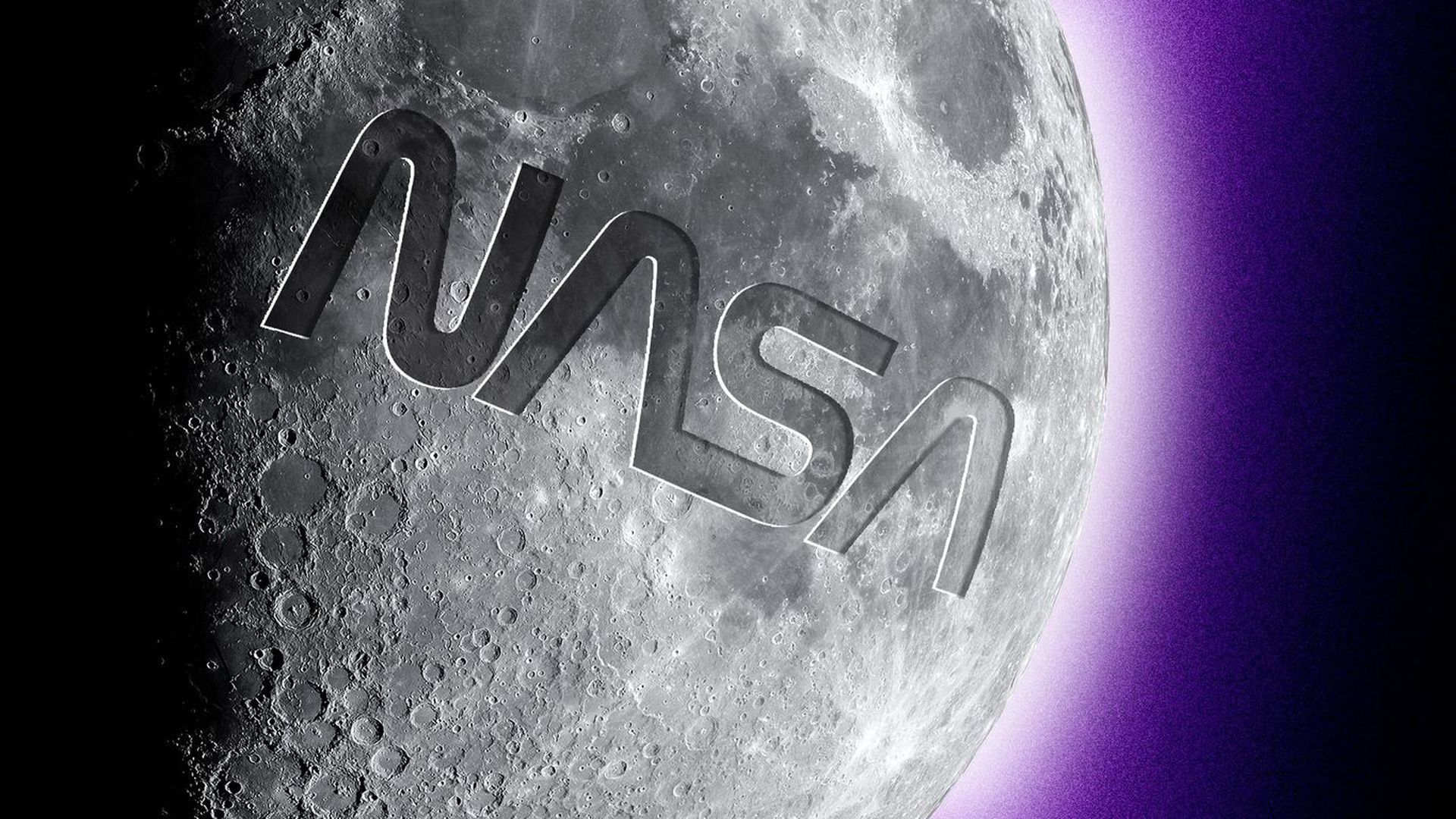| | | | | | | Presented By Babbel | | | | Axios What's Next | | By Joann Muller, Jennifer A. Kingson and Alex Fitzpatrick · Jun 02, 2022 | | Alex here. I vividly remember my first time driving a car with assisted-driving tech: a Tesla Model X, which I was reviewing for TIME. It felt like magic, even though it wasn't perfect (concerns that partial automation can lull drivers into a false sense of security are, I think, valid). Fast-forward a few years, and it's clear that the autopilot-for-cars dream is still a ways off. But as Joann reports below, not every kind of vehicle has to contend with pedestrians, cyclists and so on, making them ripe for autonomy. - See something cool or interesting that speaks to the way we'll live, work, play or get around in the future? Send us a photo for a chance to be featured: whatsnext@axios.com.
Today's Smart Brevity count: 996 words ... 4 minutes. | | | | | | 1. Look, ma, no hands — or diesel! |  | | | A Caterpillar 725 retrofitted with SafeAI's autonomous hardware and software. Photo courtesy of SafeAI | | | | Autonomy startup SafeAI is partnering with German industrial titan Siemens to create electric, autonomous heavy trucks for Japanese construction giant Obayashi, Axios' Joann Muller is first to report. Why it matters: Construction and mining companies are under pressure to reduce their carbon footprint, improve safety and lower costs. - By electrifying and automating their fleets, they're leading an off-road transportation revolution that's just as important as the transformation of passenger cars.
Details: An Obayashi-owned, 45-ton Caterpillar 725 articulated dump truck will be converted into the world's first electric and autonomous heavy truck, SafeAI CEO Bibhrajit Halder tells Axios. - The two companies will then work with another partner, AVIA Engineering, to convert the rest of Obayashi's 300-plus trucks over the next three years.
- Thanks to lower operating and maintenance costs, the retrofitted vehicles will cost 15%-30% less to operate over their lifetimes.
Context: SafeAI and Obayashi have been partnering on autonomous trucks since October 2020. - Now Siemens is adding its electrification expertise, including an autonomous overhead charging system and digital technology to help analyze safety and performance data.
The big picture: Retrofitting existing trucks is seen as a way to fast-track the adoption of sustainable technologies in heavy industries. What they're saying: "Autonomy and electrification literally go hand in hand, like bread and butter," SafeAI's Halder tells Axios. - Between new sales and retrofits — and helped by government subsidies — more than 4 million zero-emissions heavy vehicles could be deployed worldwide by 2030, the companies say.
The bottom line: The future of transportation is autonomous and electric — not just on highways or in cities, but at work sites too. Read the full story. |     | | | | | | 2. Buick's shocking shift |  | | | The Buick Wildcat EV concept. Photo courtsey of Buick | | | | Speaking of EVs: Buick's entire lineup will be fully electric by 2030, the General Motors brand announced Wednesday, as Alex Fitzpatrick reports. Why it matters: Automakers from Ford to Volkswagen have been scrambling to electrify their fleets amid steadily rising demand. - As more carmakers go electric, it will diversify buyers' options while increasing pressure on federal, state and local governments to invest in charging infrastructure.
Between the lines: GM has been trying to cool-ify the staid Buick brand. Electrification — plus new design language, seen exemplified by Buick's Wildcat concept above — could help. Yes, but: It's a big commitment for a brand that has yet to release a single EV — the first electric Buick won't hit the North American market until 2024, the company says. - Still, GM more broadly has plenty of EV experience via the Bolt and other models.
- GM also plans to introduce 30 new electric vehicles globally by 2025, including the Cadillac Lyriq (arriving now) and a $30,000 Chevrolet Equinox electric SUV (arriving next year).
|     | | | | | | 3. Elon slams remote work |  | | | Tesla CEO Elon Musk attends the start of production at Tesla's "Gigafactory." Photo: Patrick Pleul/AFP via Getty Images | | | | Tesla employees "should pretend to work somewhere else" if they're not willing to return to their offices, CEO Elon Musk tweeted Wednesday, Axios' Herb Scribner reports. Why it matters: Some companies have embraced remote work, while many want their employees back in person. As one of the corporate world's most influential leaders, Musk's stance may encourage other execs to push even harder for a return to in-person work. What they're saying: "Anyone who wishes to do remote work must be in the office for a minimum (and I mean *minimum*) of 40 hours per week or depart Tesla," Musk wrote in a leaked memo to staff, per Bloomberg. By the numbers: Fully remote work is dwindling:  Data: BLS; Chart: Axios Visuals Between the lines: It's no surprise that Musk, a guy who famously works insane hours and has been known to sleep in his office, is coming out firmly against remote work. - But as other companies embrace remote work, Tesla employees in remote-friendly roles who crave the WFH lifestyle may simply up and leave.
Read the rest. |     | | | | | | A message from Babbel | | Learning language requires variety | | |  | | | | Everyone learns differently. Babbel offers a variety of study options so you can start speaking a new language in just three weeks. Find what works best for you — whether that's Babbel's lessons, games, videos, podcasts or live sessions. Get started now for up to 60% off your subscription. | | | | | | 4. A big job for a tiny satellite |  | | | Illustration: Annelise Capossela/Axios | | | | NASA's ambitious plan to return astronauts to the Moon this decade is about to take a step forward with the launch of the microwave-sized CAPSTONE satellite, Axios' Miriam Kramer reports. Why it matters: Among other tasks, CAPSTONE will test a new type of orbit to see if it's suitable for a planned lunar space station called Gateway. - Unlike the one-off Apollo missions, NASA is designing the Artemis program to support a sustainable presence on the lunar surface.
- This launch will be one of the Artemis program's first big tests.
Between the lines: CAPSTONE will also help NASA learn how to safely operate a future fleet of Moon satellites. What to watch: The spacecraft is expected to launch sometime after June 6 and spend about four months getting into position. Read the rest. |     | | | | | | 5. Should you even bother recycling plastic? |  | | | Illustration: Allie Carl/Axios | | | | This provocative headline — "Plastic Recycling Doesn't Work and Will Never Work" — tops a new Atlantic article contending that we should give up on trying to refashion plastic waste and instead simply eschew single-use plastic, Jennifer A. Kingson writes. Why it matters: Copious time, money and effort are spent on an exercise the authors contend is counterproductive. - They suggest banning single-use plastic bags and boycotting products made from single-use plastic — but continuing to recycle paper, boxes, cans and glass "because that actually works."
The problem: Plastic waste is toxic, flammable, chemically complex and impossible to sort. - "There are thousands of different plastics, each with its own composition and characteristics," the authors write. "They all include different chemical additives and colorants that cannot be recycled together."
- Trying to reprocess plastic is "wasteful" and not cost effective, they argue.
- Plus: "Plastic is flammable, and the risk of fires at plastic-recycling facilities affects neighboring communities," many of which are low-income communities of color.
The big picture, from Andrew Freedman of Axios Generate: Oil/gas/petrochemical companies are staking part of their future on churning out more plastic products, so if recycling doesn't work, that's a direct threat. Of note: The authors both run anti-plastics groups: Former EPA regional administrator Judith Enck helms Beyond Plastics, while chemical engineer Jan Dell founded The Last Beach Cleanup. What do you think? Send your opinions to whatsnext@axios.com, and we may recycle them here. |     | | | | | | A message from Babbel | | Speak a new language in three weeks | | |  | | | | Babbel's language lessons were created by real language experts — not AI like other apps. The impact: Users report that they can hold a basic conversation in just three weeks of practice. For a limited time, try Babbel and get up to 60% off your subscription. | | | | Was this email forwarded to you? Get your daily dose of What's Next magic by signing up for our free newsletter here. |  | It's called Smart Brevity®. Over 200 orgs use it — in a tool called Axios HQ — to drive productivity with clearer workplace communications. | | | | | | Axios thanks our partners for supporting our newsletters. If you're interested in advertising, learn more here.
Sponsorship has no influence on editorial content. Axios, 3100 Clarendon Blvd, Suite 1300, Arlington VA 22201 | | | You received this email because you signed up for newsletters from Axios.
Change your preferences or unsubscribe here. | | | Was this email forwarded to you?
Sign up now to get Axios in your inbox. | | | | Follow Axios on social media:    | | | | | |










No comments:
Post a Comment